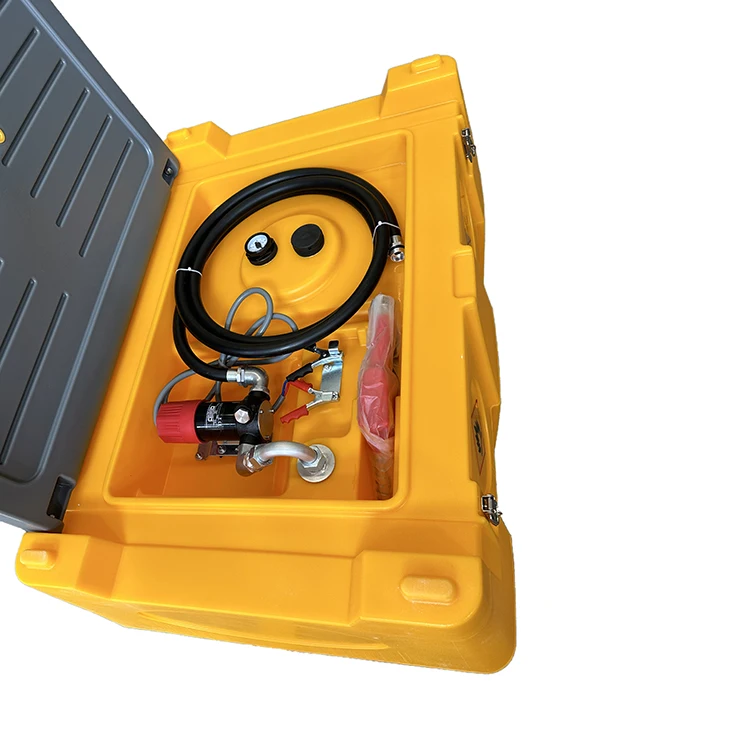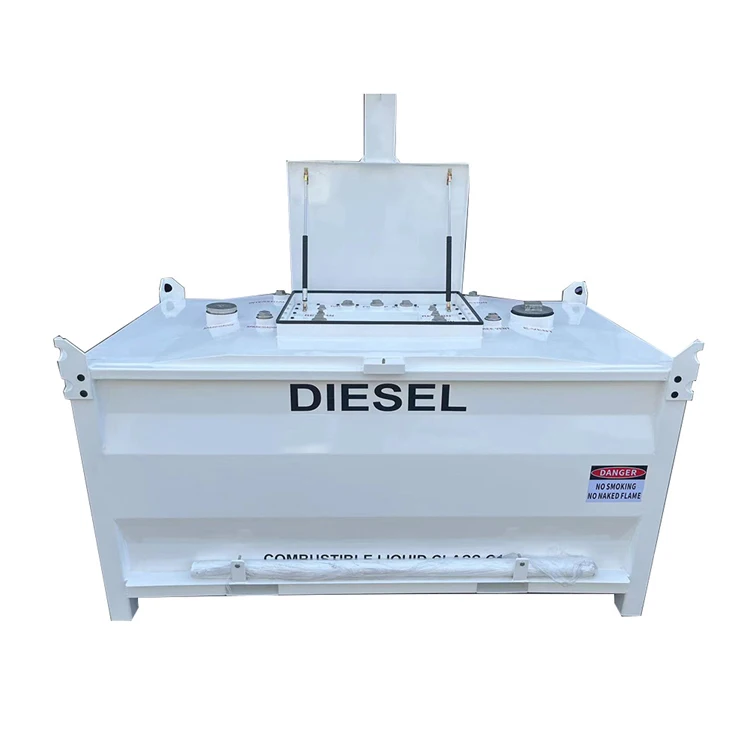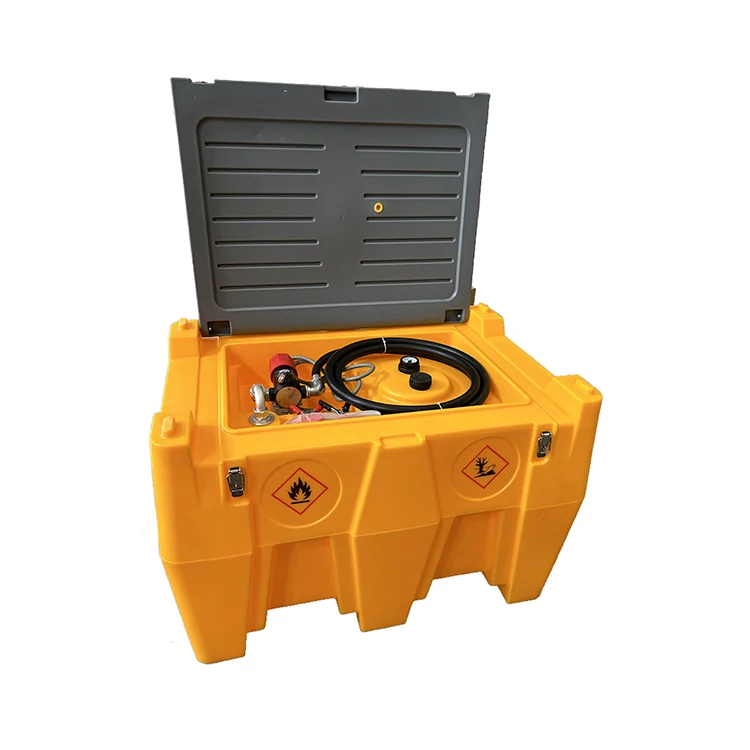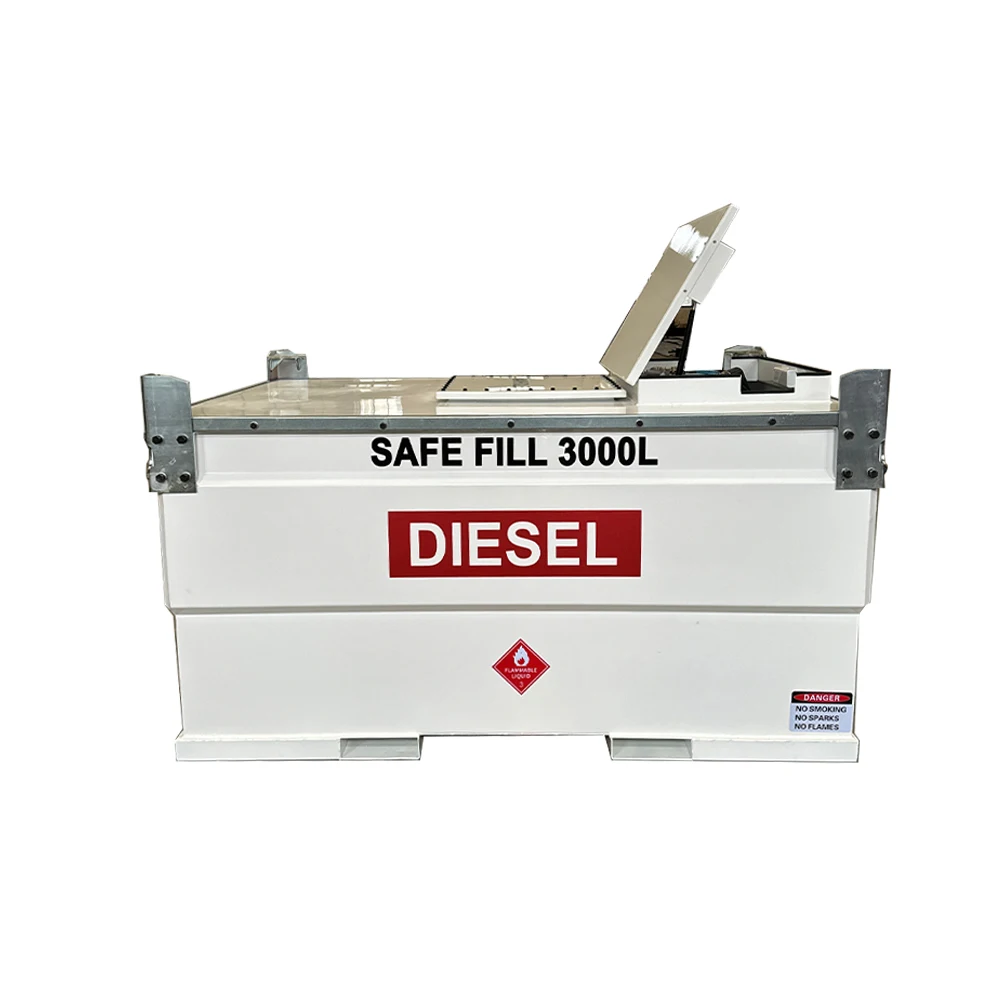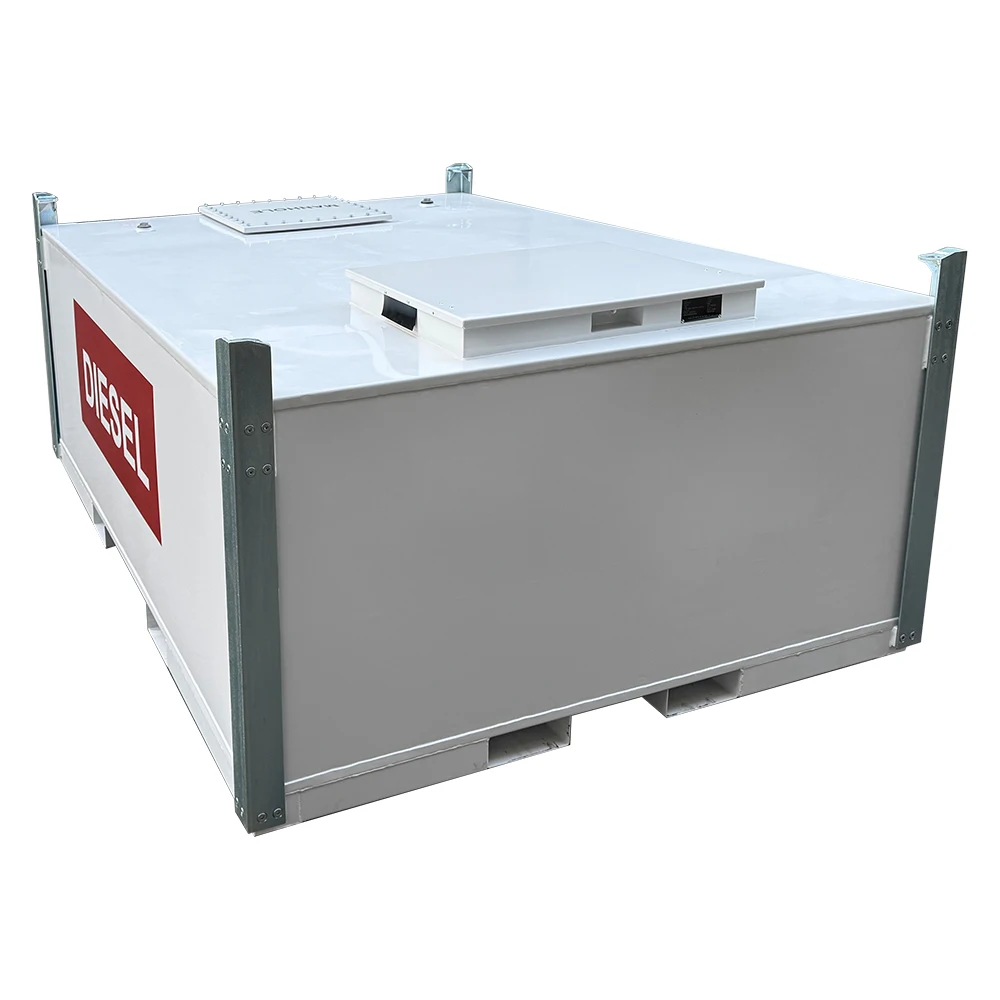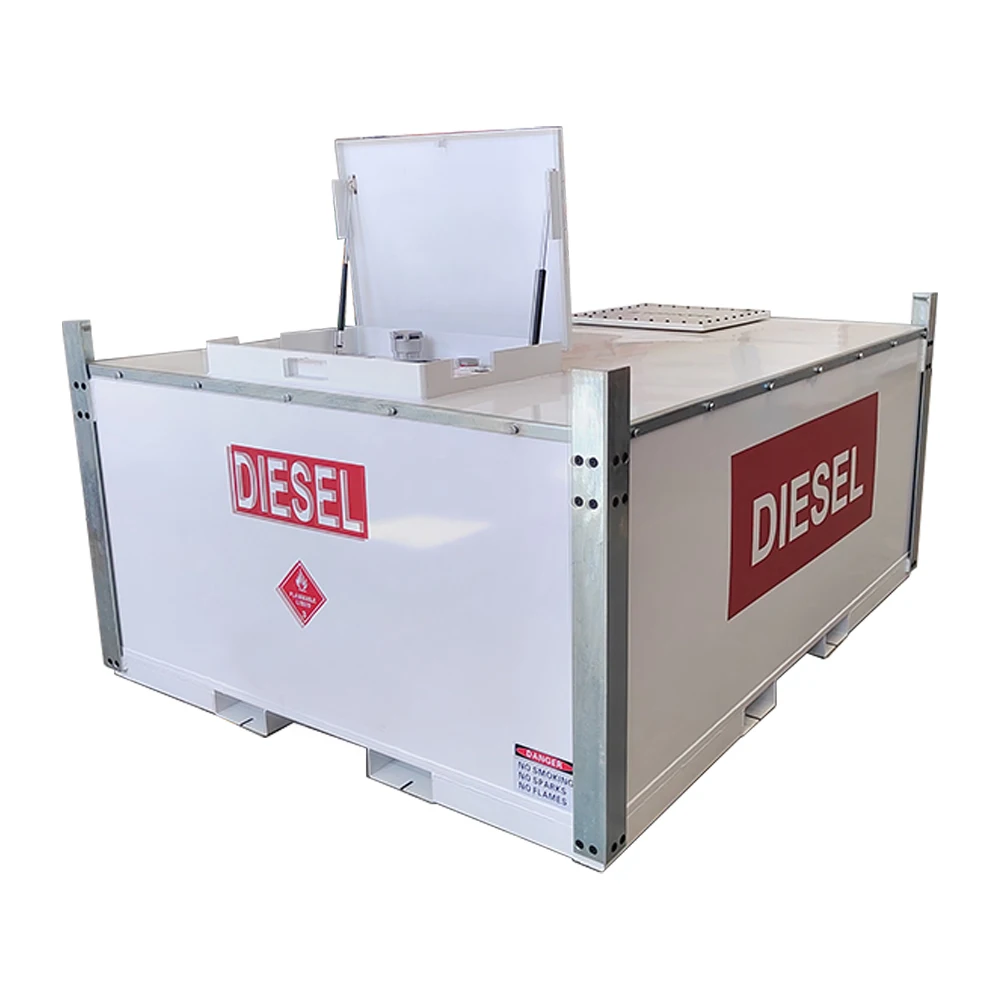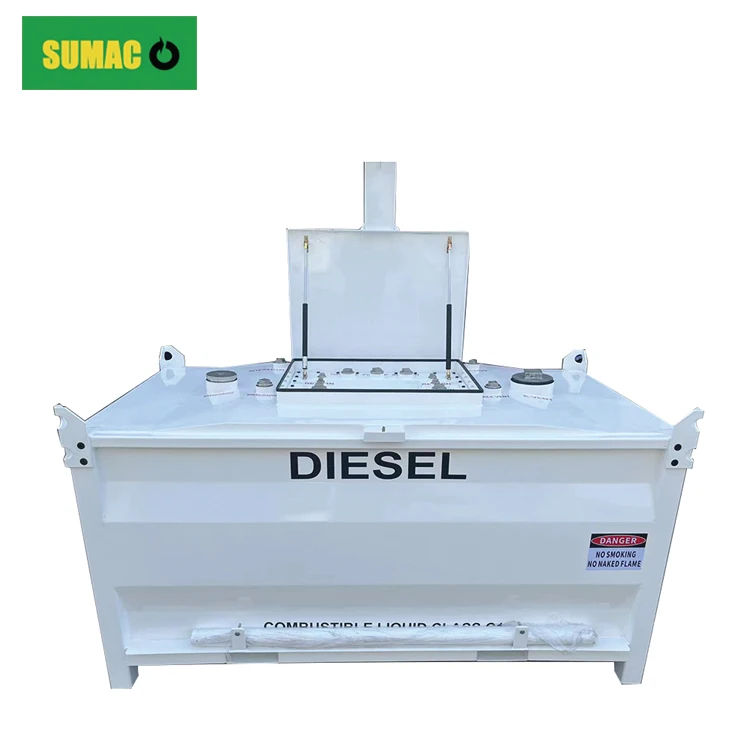Fuel storage tank diesel
A diesel fuel storage tank is essential for safely storing and managing diesel fuel, whether for commercial, industrial, or agricultural use. Here's a detailed look at its key features, design considerations, and benefits:
1. Design and Construction
Shape and Size: Diesel tanks come in rectangular or cube-shaped. Sizes range from 1000 liters to 10000 liters), depending on the storage needs.
Material: Carbon steel tanks are common for larger capacities and long-term durability.
2. Key Features
Single-Wall vs. Double-Wall:
Single-Wall Tanks: Basic design for straightforward storage needs.
Double-Wall Tanks: Include an inner and outer wall, providing extra protection against leaks and spills. The outer layer acts as a containment system, capturing any leaks from the inner tank.
Secondary Containment: For double-wall tanks, the outer layer (bund) contains any potential spills, ensuring that the environment is protected and minimizing the risk of contamination.
3. Safety Features
Ventilation: Proper ventilation systems prevent pressure build-up and manage vapors, reducing the risk of explosions or hazardous conditions.
Emergency Shut-off: Some tanks are equipped with emergency shut-off valves to quickly stop the flow of fuel in case of a malfunction or spill.
4. Mobility and Installation
Frame and Skid: Many tanks are mounted on frames or skids to provide stability during transport and operation.
5. Additional Features
Metering Systems: Some tanks come with integrated meters to monitor fuel usage and remaining levels, aiding in inventory management.
Filtration: Optional filtration systems can help ensure that the diesel fuel remains clean and free from contaminants.
Heating: For areas with extremely cold temperatures, some tanks are equipped with heating elements or insulation to keep the diesel fluid and prevent gelling.
6. Compliance and Regulations
Environmental Standards: Designed to meet local and international regulations for fuel storage, including spill containment, safety measures, and environmental protection.
Certifications: Tanks may come with certifications verifying their compliance with safety and environmental standards.
7. Applications
Commercial: Used for fleet fueling, ensuring that diesel vehicles have a steady supply of fuel.
Industrial: Supports machinery and equipment that run on diesel, providing reliable fuel storage and dispensing solutions.
Agricultural: Essential for farming operations where diesel-powered equipment is used, facilitating efficient fuel management.
Summary
Diesel fuel storage tanks are critical for managing and storing diesel fuel safely and efficiently. Their design and features ensure that they meet safety, environmental, and operational standards, making them suitable for various applications from commercial to industrial and agricultural uses.
https://www.sumachine.com/
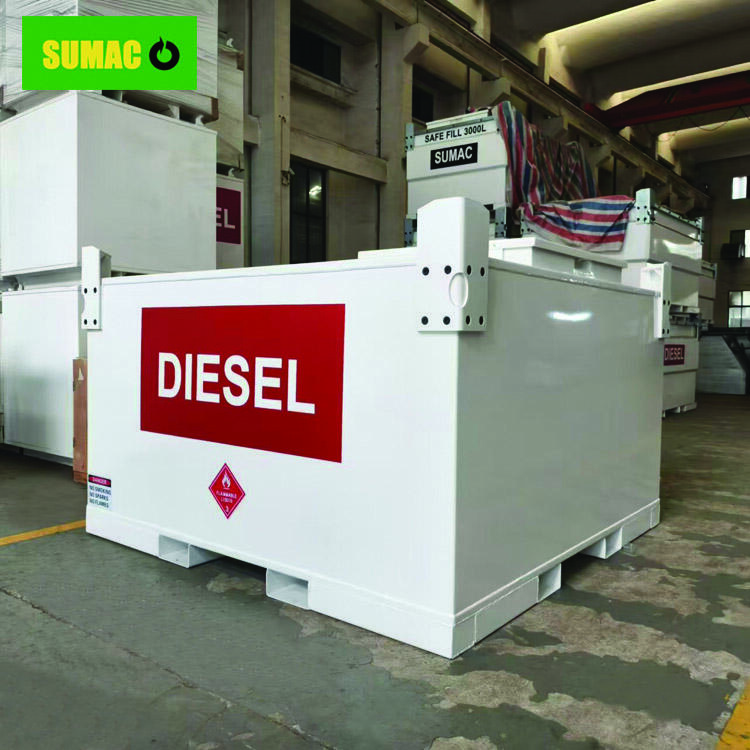
Recommended Products
Hot News
-
Double wall portable diesel gasoline cube tank with pump sale for Mauritius
2024-11-11
-
Double Walled Portable Fuel TransferCube Tank Ship To Spain
2024-11-07
-
Shipping of portable aviation fuel tank with pump
2024-10-12
-
Carbon steel diesel fuel cube tank ship to USA
2024-11-14
-
Carbon steel cube tank with pump
2024-11-13
-
Fuel Transfer Tank Cube Stationary Double Walled Diesel Storage Tank Sale For Spain
2024-11-06
-
251 US Gallon 552 Gallon Fuel Cube Transfer Tank Sale For USA
2024-11-05
-
251-2000 Gallon Fuel Cube Transfer Tank Sale For Grenada
2024-11-01
-
552 Gallon portable fuel dispenser with tank sale for USA
2024-10-30
-
Mobile fuel tank with pump sale for Spain
2024-10-22
 EN
EN
 AR
AR
 BG
BG
 HR
HR
 CS
CS
 DA
DA
 NL
NL
 FI
FI
 FR
FR
 DE
DE
 EL
EL
 IT
IT
 JA
JA
 KO
KO
 NO
NO
 PL
PL
 PT
PT
 RO
RO
 RU
RU
 ES
ES
 SV
SV
 TL
TL
 ID
ID
 LT
LT
 SR
SR
 SK
SK
 SL
SL
 UK
UK
 VI
VI
 HU
HU
 TH
TH
 TR
TR
 MS
MS
 GA
GA
 IS
IS
 KA
KA
 HT
HT
 KK
KK
 UZ
UZ


